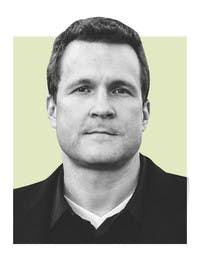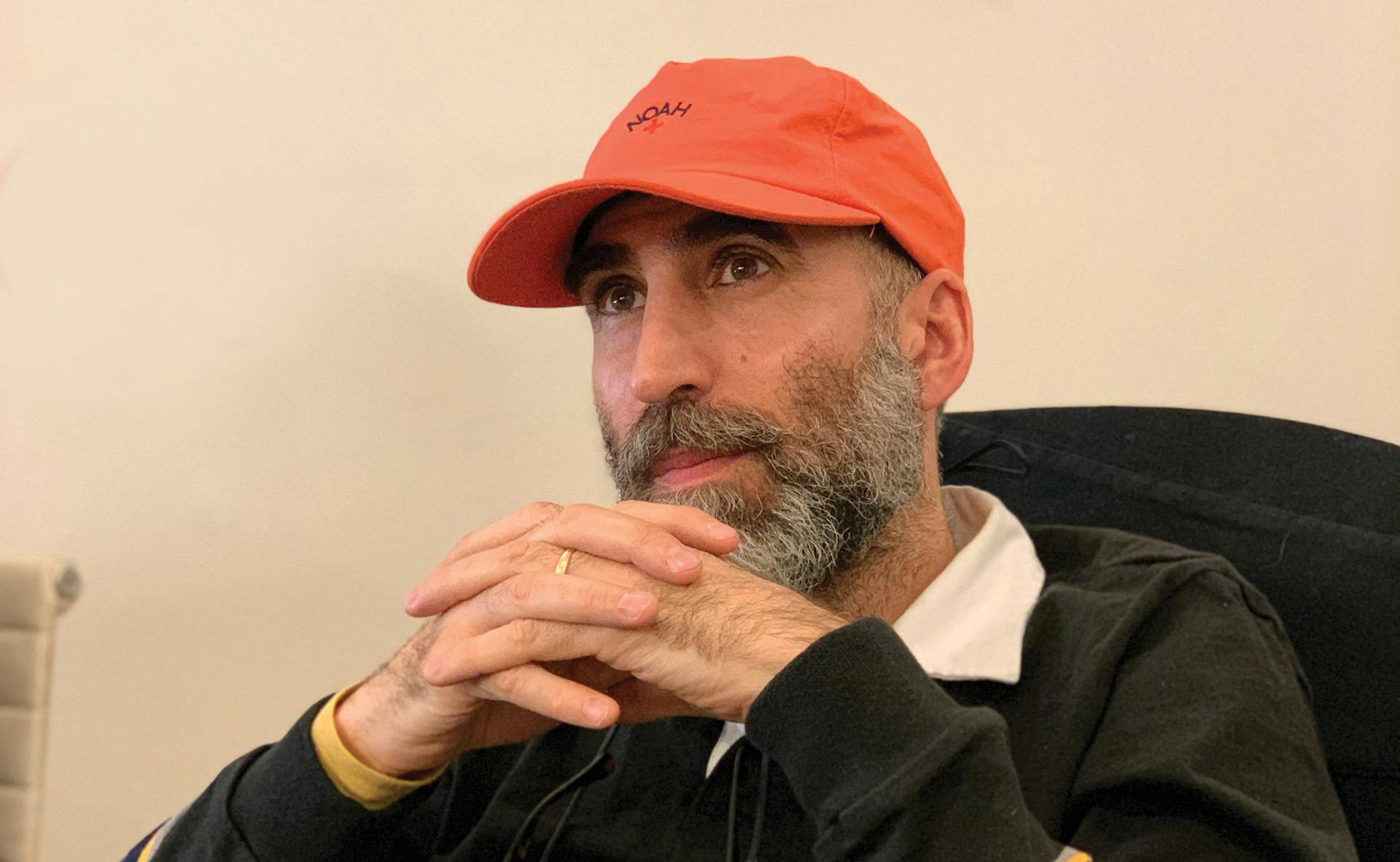You've mentioned how one of your first encounters with the notion of responsible action as a creator of goods goes back to working at a surf shop as a teenager, when the owner was complaining about excessive packaging. Since then you've spent a lot of time, resources, and attention on improving how Noah designs, manufactures, and ships. Have you observed with young people—customers or others—experiencing a similar moment of recognition when they see what you're trying to do with Noah?
We've definitely noticed that young people know the deal. They have to. Their future depends on it. Young people are highly misunderstood, it seems. Everyone over 40 thinks that young people are lazy. But in reality, they just have a different set of priorities. They would rather be happy and feel satisfied with their day-to-day than be rich. They're willing to have less to live a fuller life. Environmental responsibility fits perfectly with that type of lifestyle. I think it won't be long before things that seem progressive today will just be the norm. We just have to wait for all of the older politicians and business leaders to age out.
How would you describe your creative relationship with technology?
I don't have one. Technology and I don't get along very well. I respect it, and I know that we need it, but for me personally, it's not a necessity to do what I do. A few computers and that's about it.
You're focused on responsibility as part of the Noah brand, which includes a lot of transparency and sincerity about your mission, while trying to avoid easy buzzwords. What advice would you give to other entrepreneurs who want to follow that path?
Keep it simple and honest. Make sure you enjoy what you do so you're already satisfied. Don't put some big financial payoff as the goal. Money distracts from the mission. If you're chasing money, you could start adjusting how you make decisions, and that can take you off of your path.
What do you view as the greatest challenge facing the world in the next five years?
Donald Trump.
How has the nature of your work changed over the course of your career?
It hasn't changed all that much in terms of design or whatever. I'm still into the same things I was into as a teenager. The difference now is I have the ability to build in some better choices and run a more responsible business. I didn't have that option before. But the influences are still the same.
What would you like to achieve in your work that you haven’t yet attempted?
I'd like to go back to my roots and attempt to open my dream surf and skate shop. I was a teen when I worked in that space, and I wasn't fully in control. I'd like to see what would happen if I could essentially put all of my energy and beliefs into a shop today.
You've chosen to try to avoid using synthetic fibers in your clothing to minimize shedding, while also exploring garments made from recycled waste. Do you feel these methods are becoming more practically accepted in the industry, or is there still a lot of resistance?
I don't think there is resistance necessarily. I just think it's hard to do, and in some cases really costly. It takes a lot of investment, both time-wise and financially, to pursue new ways of doing things. We're only scratching the surface of what will be possible. For us, a lot of it is experimental, and we hope to be better as we move forward. It seems like the customer is accepting of the stuff we've done so far. We'll keep pushing forward.
How has technology allowed you to connect with people?
Obviously, we've come into business in a time when you can reach everyone with very little expense. Social media and websites have made it really easy for us to send our message and reach our audience without big budgets. It makes the industry much more democratic and competitive for smaller companies. I love that about it. But on the flip side, it has streamlined information so much that it seems like everyone is into exactly the same stuff, at exactly the same time. That's the negative. Our society seems less diverse in terms of its interests. We're all becoming the same.
What do you view as your most personally meaningful accomplishment so far?
Maintaining a reasonable home life while running the business. Estelle [Bailey-Babenzien] and I work together, so that helps. We see each other a lot through the day and get to spend quite a bit more time with our daughter than other parents might be able to.
What new ideas have you encountered when traveling?
I don't recall specific ideas. It's more the overall understanding of others that I get when traveling. Being able to put real faces and personalities to faces, so that it can be applied in real-life practical terms. If you never travel and see other societies and cultures, it's much harder to be empathetic. But when you travel a lot, you realize people are more or less the same everywhere and need to be treated fairly and with respect.
What opportunity do you most regret not taking full advantage of?
I don't regret. It's wasteful.
What brings you the greatest satisfaction in your work?
I'm extremely proud of the Save the Children stuff we do every Christmas. That one really sticks out for me. Kids all over the world are caught in the middle of conflicts between greedy men. It's a fucking disgrace. Our contributions barely move the needle, I'm sure—but if we can help anyone at all, it's worth it for me.
What organizations have you enjoyed working with the most?
Pretty much everyone we have worked with so far have been cool. We really wouldn't work with them otherwise. We really try to keep it honest. We aren't really working with any company we don't like. The whole idea here is if we aren't genuinely interested, we're not doing it. But I can say the Frog Skateboards thing was a highlight. I also really feel good about the Keith Haring Christmas stuff every year too. It feels amazing to be able to make something I'm proud of and use it to help others.
Who are some people you particularly admire?
Anyone who has ever had the nerve to write a song and put it into the world. [Patagonia founder] Yvon Chouinard.











